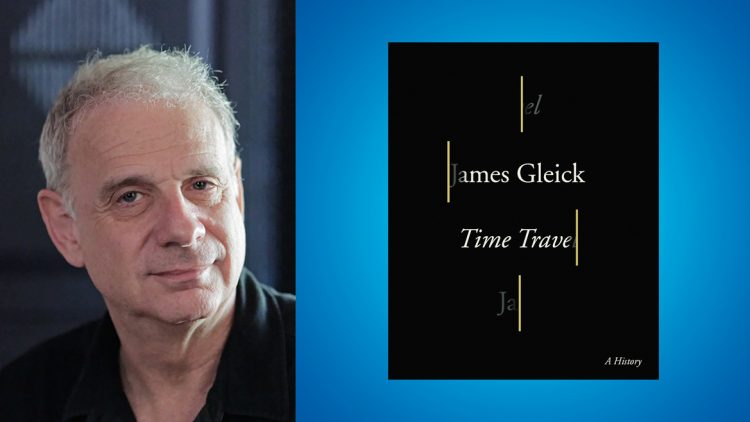Conversations is an ongoing series of talks with authors, thinkers, leaders and supporters of the MDC Community.
Time Travel: A History is James Gleick‘s mind-bending exploration of time travel — its subversive origins, its evolution in literature and science and how the concept influences our understanding of time itself.
James Gleick is a former New York Times editor and reporter. The celebrated author has won several prestigious awards. His first book, Chaos, was a National Book Award and Pulitzer Prize finalist and a national bestseller.
Gleick appears at the Miami Book Fair on Saturday, November 19 at 2pm. MDC News editor Gabriel Riera asked him about his new book.
Gabriel Riera: What propelled you to write Time Travel?
James Gleick: Time is the last great mystery. Time rules our lives, confuses us, empowers us, terrifies us. When I’ve written in the past about scientific things, questions about time have always been lurking there, sometimes in the background, sometimes in the foreground. At some point, I realized that the idea of time travel has become a very special kind of myth-making for us and that this has happened very recently — just in the last century or so, since H. G. Wells. How did that happen? What do these stories do for us, how do they change us? I wanted to find out.
GR: What does this book offer to the person who is not necessarily a science or science fiction aficionado?
JG: I’m not necessarily a science-fiction guy myself. But it turns out that we’re all aficionados of time travel, whether we know it or not. It’s in our blood. We may be unwilling experts, but there we are. I know 8-year-olds who argue about the paradoxes of time travel over breakfast.
JG: You quote the philosopher Samuel Alexander in the book, what do you think he means when he states “Time is an essential ingredient in the constitution of things?”
What if there were no such thing as time? What then?
I also quote the great physicist John Archibald Wheeler, who said that time is nature’s way of keeping everything from happening at once. Then again, Woody Allen also said that. And neither of them ever knew who said it first.
GR: You make the case that before H.G. Wells’ novel The Time Machine, people hadn’t generally spent much time thinking about time travel. Why not? We project ourselves into future situations, we sometimes long for the past, (nostalgia), in fact, as humans we seem to have trouble really staying in the present moment. Don’t ideas about time travel naturally arise as part of our human condition?
JG: Before H. G. Wells, the term “time travel” literally didn’t exist. You can look it up. You’d think it would simply be obvious, or inevitable-a natural fantasy. Yet it wasn’t. It’s genuinely new. But you’re right, humans have always been mental time travelers. The concept of time travel allows us to see that, in hindsight (as it were), and to talk about it. It helps us be aware of things that used to be unconscious.
GR: We tend to commonly talk about time as traveling in a straight line (time’s arrow as mentioned in your book) – from past to present to future. However, we are increasingly exposed to ideas about multiple universes, travel at or near the speed of light, timewarps and wormholes, Mayan concepts of cyclical time, and so on. How do you see our notion of time and travel evolving in the 21st century?
JG: That’s exactly where my book leads: we’ve lived to see new, increasingly tricky and weird ideas about time, and now we face another sea change. Our networked, light-speed, many-channel experience is upending our relationship with time in profound new ways. Stay tuned!
